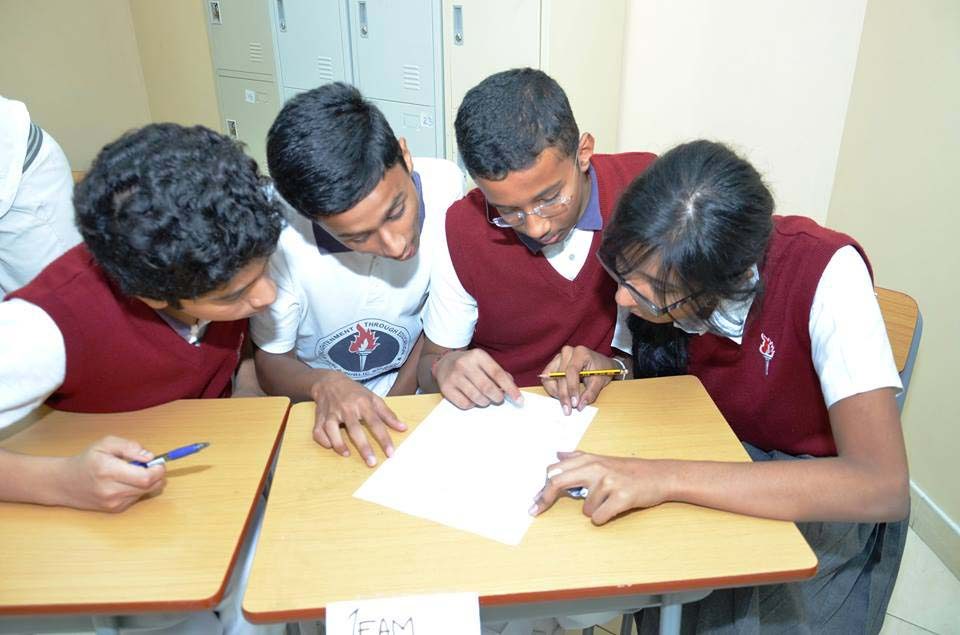
More than four dozen schools and kindergartens in Qatar have been allowed to raise their tuition fees for the upcoming school year, the Ministry of Education and Higher Education has announced.
The 55 schools will increase their rates from 2 to 7 percent. The ministry did not name which institutions these are.
A total of 162 schools sought permission to increase fees, but 66 percent of them (some 107 establishments) were rejected because they failed to meet the required conditions, the ministry said in a statement.
Factors that were taken into consideration included schools’ financial and academic performance, said Hamad bin Mohamed Al Ghali, the head of the ministry’s Private Schools’ Office.

The majority of schools in Qatar must petition the country’s education ministry for approval before hiking fees.
In 2014, the ministry declined 70 percent of applications from private schools for fee increases, citing their failure to show compelling evidence that they are incurring losses or upgrading their facilities.
That year, the then-Supreme Education Council launched a five-point-plan that assessed schools’ requests to raise tuition hikes, in an effort to create a “scientific and transparent” system.
Increases
Among the schools that raised fees is Doha English Speaking School (DESS), which said in a letter to parents this week that it was permitted a 3 percent increase.
That means its annual tuition fees will be QR36,300 for the new school year.
Other schools, including Doha Modern Indian School, MES Indian School and Park House English School, have put in requests for increases but have not heard back from the ministry.

A Park House school official told Doha News that it had applied for a 15 percent uplift in its current fees, which are nearly QR23,000 a year for nursery children, and QR52,423 for students in years 12 and 13, according to its website.
Many other schools did not respond to Doha News’s requests for their new fee structure.
Community schools
Some community schools, which are sponsored by their respective embassies, have raised their fees considerably more than 7 percent.
These schools are not obligated to seek ministry permission before deciding their new fees.
For example, Pakistan Education Center informed parents this week that its tuition fees would rise by 30 percent, starting June 1. The school did not respond to requests for its new fee schedule.

But according to a memo shared with Doha News, parents will now need to pay from QR5,208 to QR9,180 for two children a year, depending on their age. There are discounts for additional siblings.
Speaking to Doha News, a PEC parent said many are taken aback by the large increases and hoping that the government will intervene.
“If this type of increase continues every year, it will become impossible for parents to continue bearing such high fees for their children, especially if someone has three or four children in school,” said the parent, who asked not to be named.
Meanwhile, tuition fees at British Embassy-sponsored, not-for-profit school Doha College will increase by up to 20 percent for its pre-school children to over QR37,000 a year and by 7 percent for Year 12 and 13 students to nearly QR72,000 annually.
Informing parents in a letter in March, the school cited hikes in land rental, though it is unclear if this pertains to its long-standing Al Waab campus or relatively new West Bay campus, or both.
In a statement to Doha News, Principal Dr. Steffen Sommer said:
“Following a three-year moratorium on fee increases, we will have to increase our fees to cover a 112% rent increase for the property on which we operate and other substantial increases over and above inflation.”
While higher tuition fees can be a financial burden on parents, educators argue that they need to at least keep teachers’ salaries in line with inflation to attract the best staff, as well as meet other rising costs such as accommodation and facility rentals.
New schools
The fee increases come as Qatar continues to struggle to provide enough places for children moving to the country.
To help with this issue, the education ministry announced this week that so far, 15 new private schools and kindergartens have been granted approval to open during the new academic year.
This should create some 10,380 new seats for students in Qatar, it said.

Some five schools will launch in September, Al Ghali said, while the remaining 10 will open sometime during the 2016/17 academic year.
Among the first of the new schools to open, according to the ministry’s statement, will be two schools following the IB-curriculum and two kindergartens.
The other 10 schools include four British-curriculum schools, one British kindergarten, one school with a Turkish curriculum, two Swiss schools, one German curriculum kindergarten and one American curriculum kindergarten.
A total of 68 schools have put in bids to open in Qatar this coming academic year, and their applications are under consideration, the ministry added.
Thoughts?







